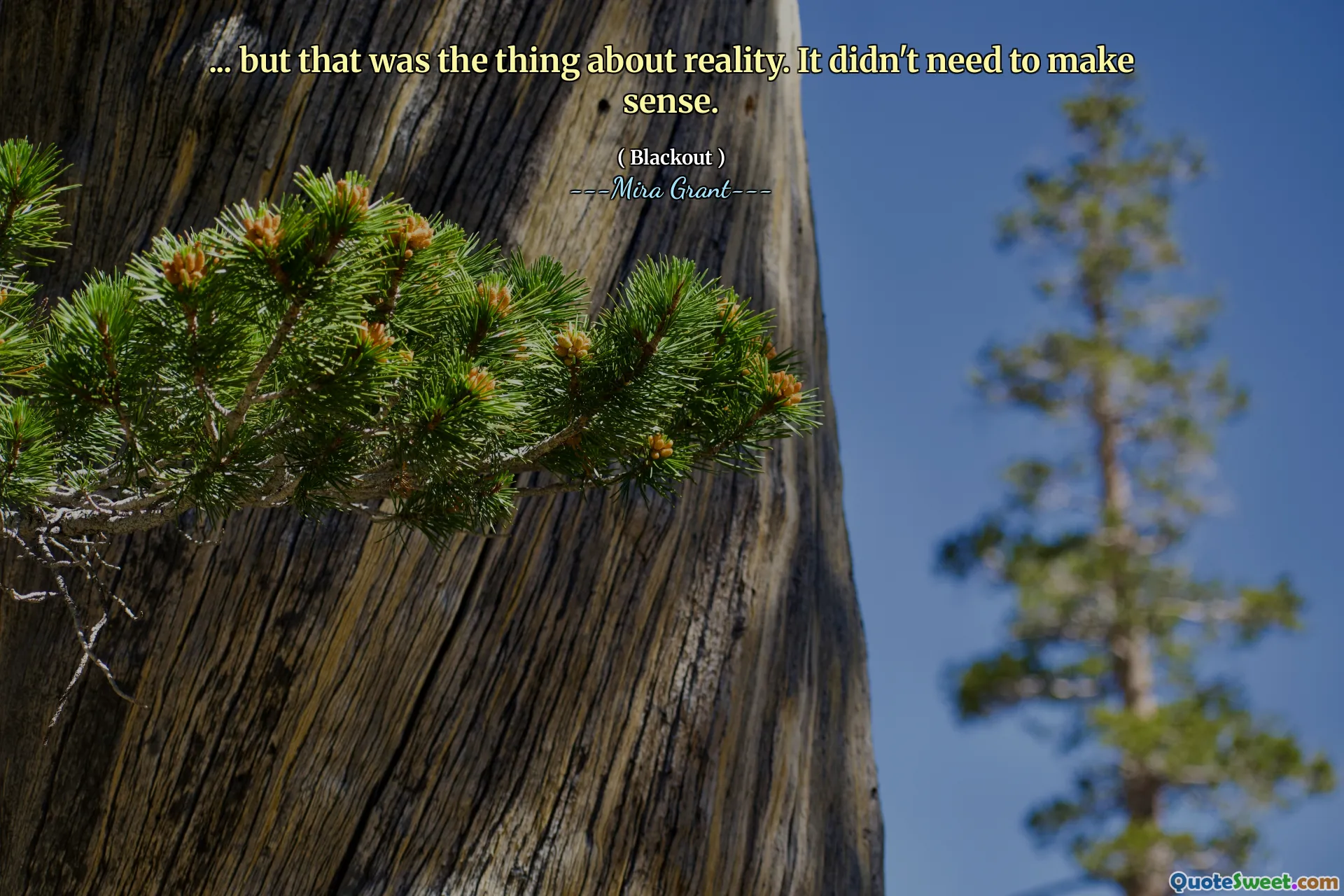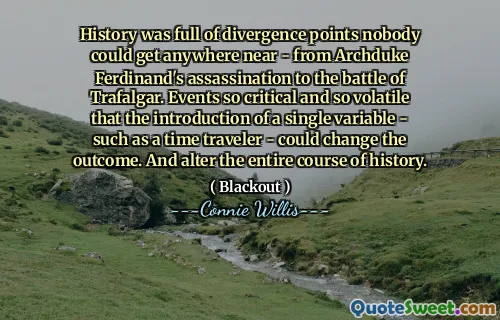
... but that was the thing about reality. It didn't need to make sense.
The quote highlights a profound aspect of reality: its intrinsic unpredictability and the often paradoxical nature of life. Many people strive to impose logic and order onto their experiences, seeking patterns and reasons for everything around them. However, this quote reminds us that reality doesn't always conform to human expectations or comprehension. Sometimes, events occur that defy explanation, and accepting this can be both liberating and unsettling.
Living with the understanding that reality doesn't need to be logical or consistent can open our minds to a broader perspective. It encourages acceptance of chaos, ambiguity, and even absurdity, as integral parts of existence. In doing so, we're invited to embrace discomfort and uncertainty rather than constantly battling against them for clarity. This mindset can foster resilience, adaptability, and a sense of wonder—being open to surprises and the unknown.
Reflecting on this concept in my own experience, I've noticed how sometimes holding onto rigid definitions or assumptions about life can limit growth. When I stop trying to make everything fit into a neat narrative, I allow space for novel insights and opportunities to emerge. The acceptance that reality does not need to make sense offers a freeing perspective, urging us to navigate life with curiosity and humility. It reminds us that life's complexity is not a flaw but an intrinsic feature, encouraging us to find peace amidst the chaos.
This idea ultimately challenges our need for control and certainty—an essential realization in a world that often feels unpredictable. By acknowledging that reality doesn't need to make sense, we can learn to live more authentically, appreciating the mysterious and chaotic beauty of existence.







